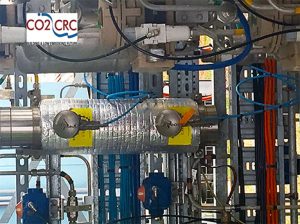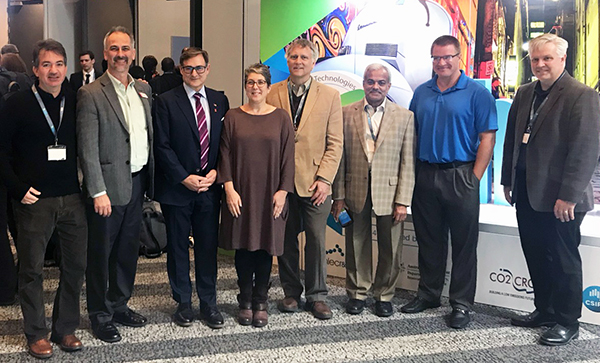Nine Prairie Research Institute (PRI) carbon capture, utilization and storage (CCUS) researchers traveled to Melbourne, Australia in October for the Greenhouse Gas Control Technologies Conference 14, the field’s leading biennial scientific gathering, sponsored by the 30-nation Energy Technology Network.

While at the conference, they visited Australia’s major CCS center, the Otway National Research Center. Otway’s CO2CRC gas separation test facility is developing membranes and techniques for CO2 storage, according to ISTC Director Kevin OBrien.
OBrien added that Dr. Abdul Qader, CO2CRC’s facilities manager, explained new strategies for separating CO2 from methane. “This would be a major driver for the natural gas industry in the Asia-Pacific region,” OBrien explained.
“They also have the ability to test new sorbents as part of their research into pressure swing absorption,” he said.
PRI is also a major player in technology development for CCUS. At ISTC, research focuses on the development of a large-scale U.S. carbon capture pilot at a working coal-fired power plant. Illinois State Geological Survey (ISGS) researchers have developed expertise in sequestration of carbon dioxide in deep rock formations.
Because global demand for fossil fuels is not likely to decline soon, technologies must be developed to reduce carbon emissions by capturing, storing, and finding beneficial ways to use the waste gas, OBrien said. Capture requires a lot of energy and work at PRI and CO2CRC both search for better capture efficiency to lower its cost.
Work is underway worldwide to perfect a wide variety approaches. Successful commercialization of any of these technologies could be a game changer for climate change efforts because most of the world’s economies will continue using coal and other fossil fuels for the foreseeable future, said OBrien.


